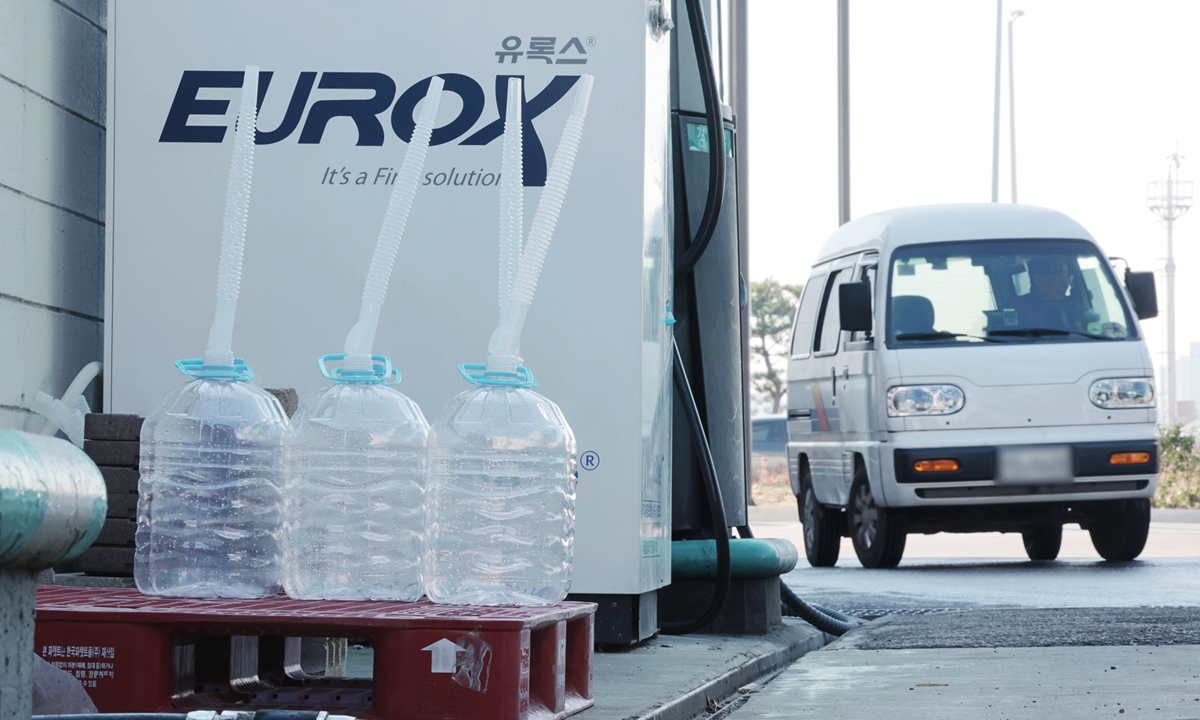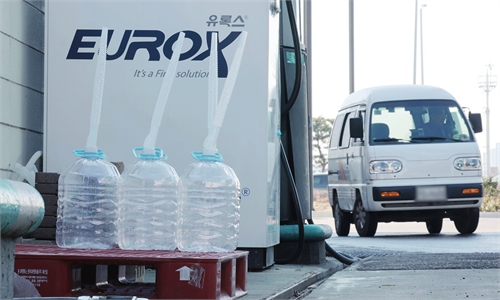
Barrels of urea solution for cars sit empty at a gas station in Goyang, South Korea on December 4, 2023. According to a Chinese foreign ministry spokesperson, the relevant departments of China and South Korea maintain communication on reported "halting of customs clearance on exports of urea to South Korea." Photo: VCG
China is ramping up urea supplies to meet rising market demand, industry experts said, defying intensified rhetoric by some foreign media outlets claiming that there were so-called export controls on urea from China, the world largest producer and consumer of fertilizer.
Speculation regarding export controls on urea, a nitrogen-based product used as a fertilizer in agriculture and as a way to curb diesel and industrial emissions, have come up in some news headlines, criticizing China about the possible impacts of such a move and hyping the reactions of some countries in terms of diversifying their sources of imports to reduce risks.
Asian fertilizer buyers are seeking alternatives to Chinese supplies amid concerns that the world's top exporter has become an increasingly "unreliable" supplier after (imposing) curbs on shipments to protect its domestic market, Reuters reported on Monday, citing buyers and analysts.
Some foreign media outlets claimed that some countries have been affected by the reduction in China's urea exports and have therefore looked for imports from other countries, Xu Xiaoyun, an analyst of chemical fertilizers at JLC, told the Global Times on Tuesday. "It's an obvious misunderstanding and exaggeration," he said.
While certain statistics show that China is an important global urea producer, it is mainly used in the domestic market, and the total export volume only accounted for around 5 percent of the world in 2022, Xu explained, noting that China's urea cannot play a dominant role in the global market.
Instead of putting all the blames on China over its so-called export adjustment, the expert said that countries seeking more sources of imports are engaged in market behavior based on factors such as cost performance and transportation costs. "The main reason is not due to the rumored reduction in China's exports," he said.
In addition to China, there are many sources of urea in the global market. CITIC Futures stated in a recent research report that the new global urea production capacity is mainly concentrated in countries such as Russia, Bangladesh, India, Iran and Egypt.
In a previous interview with the Global Times, Wang Liqing, secretary-general of the China Nitrogen Fertilizer Industry Association, said that "there is no such thing as export controls, and what has been happening is in line with WTO rules."
China has also managed to maintain its exports to meet global needs this year. From January to October, China's urea exports reached 3.43 million tons, a year-on-year increase of 65 percent, according to the Ministry of Commerce.
Although China's urea exports have increased this year, Russia remains the world's No.1 urea exporter. In addition, Indonesia and Egypt are both major urea exporters, experts said.
With the rising emphasis on agricultural production and food security, countries including China are expanding their urea production capacity.
Global Times

